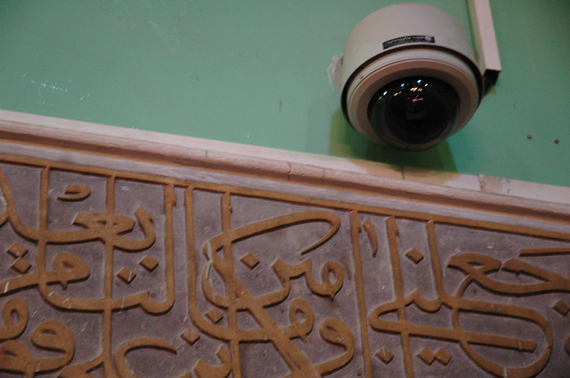"Whosoever sees an evil, then let him change it with his hand. If he is not able, then with his tongue. And if he is not able to do that, then with his heart and that is the weakest of belief." -Prophet Muhammad (Peace be upon him)
Often called "the supreme law of the land," our U.S. Constitution guarantees the community of believers many protections to freely practice their religion in a safe environment. It is a reality that extremism, terrorism, and mass shootings trouble the vast majority of our citizens today.
In September of 2014, the FBI released a study of active shooter incidents in the U.S. between 2000 and 2013. In its findings, it concluded that active shooter incidents are becoming more frequent and the incidents during the period of the study totaled 1,043 casualties. More recent data, according to the Christian Science Monitor shows that there has been 22 mass shootings in the U.S. this year. Undoubtedly, this distressing scenario called for prompt assertive actions to better prepare our institutions, individuals, their families, and the community at large.
It is the duty of a citizen and believer to act responsibly and be aware of our constitutional and legal rights to worship safely. To achieve this, our religious and academic institutions should first increase their awareness, preparation, and responsiveness to any potential criminal vulnerability that might compromise their safety and security.
CAIR's Florida chapter has initiated safety trainings throughout the state to help the community understand their rights and to provide them with tools to start or improve their security program. The areas covered are security in their worship and learning centers; as well as personal and home safety. The first step is to formally establish a safety plan for each area of concern.
As to their personal safety, the attendees receive training (1.) about the availability of non-lethal personal safety measures that include personal defense professional training and (2.) about other non-lethal weapons such as chemical spray and tasers. Trainers also instruct the community on their right to bear arms in accordance with the Second Amendment of the U.S. Constitution and State laws.
Another main focus of CAIR Florida's safety training is extremism. Community members are taught about the responsibilities of both law enforcement agencies and the community to address this problem.
Religious extremism is very real and often leads to criminal behavior or, what is worse, terrorism. When a case of extremism is detected by a community member, they are being educated to promptly bring it to the attention of their community's leadership. In these trainings, CAIR Florida has presented to the community an innovative approach to properly address this serious problem proposing that any individual that holds extremist views is promptly addressed by a holistic team of experts. The team shall include licensed mental health professionals, legal professionals, social workers, and spiritual leaders.
On the other hand, community members are instructed that, if a case of extremism is accompanied by any form of criminal behavior, it must be immediately reported to law enforcement without hesitation. Trainees are educated to recognize different forms and sources of external extremism that could potentially endanger their places of worship and their own families.
To such extent they are also prepared to identify these potential dangers; and the various options that they may implement for their safety and security plans.
Knowing our rights as worshippers is a religious and civic duty. There is no magic formula to keep our communities, our homes, and ourselves one hundred percent safe. However, the more we educate our communities on their rights and responsibilities, the more they will contribute to the overall safety of their communities and our nation.
